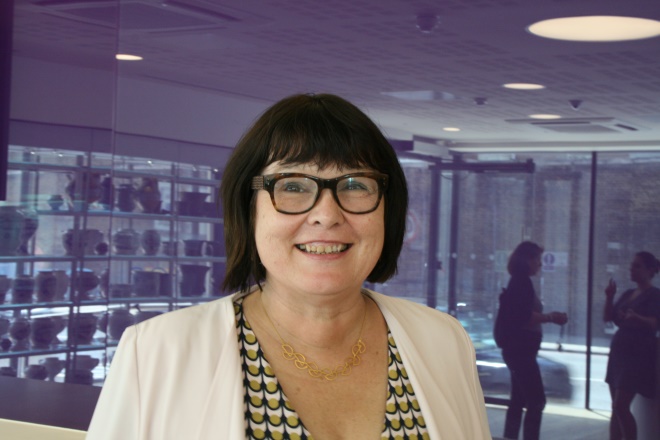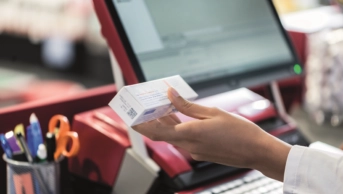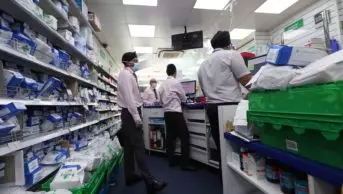
Royal Pharmaceutical Society
The Royal Pharmaceutical Society (RPS) English Pharmacy Board (EPB) held its summer meeting via Zoom on 24 June 2020. In attendance at the meeting were Paul Bennett and Sandra Gidley, chief executive and president, respectively, of the RPS; Ravi Sharma, director for England at the RPS; Robbie Turner, director of pharmacy at the RPS and member experience; Annamarie McGregor, RPS Local lead; Gino Martini, chief scientist at the RPS and Amandeep Doll, inclusion and diversity co-ordinator at the RPS.
Guests at the meeting were Sue Kilby, chair of the chair of the RPS’s Industrial Pharmacists Forum; Gillian Hawksworth, past president of the RPS; Sean Brannen, treasurer of the British Pharmaceutical Students’ Association; Jatinder Harchowal, chair of the RPS Hospital Expert Advisory Group and Darren Powell, Mohammed Hussain and Nahim Khan, members of the RPS.
Welcoming attendees to the meeting, Claire Anderson, chair of the EPB, offered her thanks to RPS staff for their work over the past few months: this had, she said, been “phenomenal” and noticed by members, non-members, other professions, the press and the government. Anderson also thanked the EPB, noting that they had been “working hard in [their] day jobs and supporting others: everybody has risen to the occasion incredibly well”.
Election to Assembly
The first order of business was the election of two EPB members to the RPS Assembly, as current Assembly members Ash Soni and Mahendra Patel had come to the end of their terms. Four nominations were received: Soni, Patel, Thorrun Govind and Andre Yeung.
Following a vote in which all board members voted, with no abstentions, Govind and Yeung were elected. Govind thanked the board, adding that she is “passionate about the Society and the profession: let’s all work together and make this a Society that everyone wants to be part of”. Yeung offered thanks to Soni and Patel, and said that he was “looking forward to working with everyone”.
Anderson offered her thanks to Soni and Patel for their service, and to Patel for his “diligence as [RPS] Treasurer”.
COVID-19 and the new normal
Sharma said that the RPS’s full COVID-19 workstream had closed last Friday [19 June 2020], but that the RPS would maintain their COVID-19 response work as the pandemic “is still with us”. A “considerable amount of work” had been done since the start of lockdown and the RPS staff had shown “agility in changing operational function”. Sharma noted that the COVID-19 response had included 16 webinars with 10,200 user registrations; 57,700 views of the RPS continuing professional development hub and the analysis of 6,500 pieces of intelligence, including publications by the government and NHS England and NHS Improvement; journals and scientific literature and questions or comments raised during webinars. Sharma thanked Gail Fleming, Beth Ward and Wing Tang for their, and their teams’, contribution to this response.
Going forward, Sharma said that the RPS would still respond and react to all COVID-19 issues facing pharmacy teams, and that activity will continue to be reported to county teams and boards every Friday. The Society will now focus on business critical activities and an early careers pharmacist programme, as well as a streamlined COVID-19 response.
Harchowal said that “at the Nightingale [hospital], we worked closely with the RPS on guidance for critical care” and that he was “pleased to see the profession come together. Thank you from me, and on behalf of the hospital pharmacy sector: the linking together of sectors was outstanding.”
Gidley noted that the COVID-19 response had been “very member-focused and, to a certain extent, member-driven: it was communication from members that enabled us to spot issues before some others realised there were issues.
“I really hope we stay focused on that aspect: we need to be building these links with members and working collaboratively”.
Kilby highlighted the contribution of pharmacists in industry: “a number [of these] have been involved in clinical trials, medicines information and medicines supply” during the pandemic. “They are part of the profession and should have some acknowledgement of work they have been doing”. Turner said that the RPS had highlighted the role of industry and that Martini had had “some really good scoops around vaccine development, and debunking some treatments”.
Inclusion and Diversity report
Doll noted that the RPS’s Inclusion and Diversity strategy report had launched on 22 June 2020. This had, she said, been due in April or May, but had been pushed back owing to the pandemic. She said that an RPS survey and workshop, undertaken as part of the research for this strategy, had found that disability — both visible and invisible — was seen as a barrier and an area where more support was needed, as were issues around age, race, pregnancy and maternity status.
The survey had been taken in “a pre-COVID world”, however. “We now know that COVID-19 highlighted social and health inequalities across black, Asian and minority ethnic communities,” Doll added.
Doll said the RPS is “really keen to work with members” towards the strategy aims, and that the first step will be the formation of an action group which will work with existing networks like the UK Black Pharmacists Association. The Society also, she said, will “need to start looking at diversity of boards; we will be collecting diversity data”.
Progress towards the strategy aims will, Doll said, be reported to the national pharmacy boards.
As the meeting drew to a close, Anderson asked those in attendence to join together for a minute’s silence in remembrance of pharmacy colleagues, and others, who have died from COVID-19.
- The date of the next EPB meeting was set for 8 October 2020.
You may also be interested in

RPS meets with government to discuss pharmacists amending prescriptions during medicines shortages

A third of pharmacists report COVID-19 significantly impacted their mental health and wellbeing
